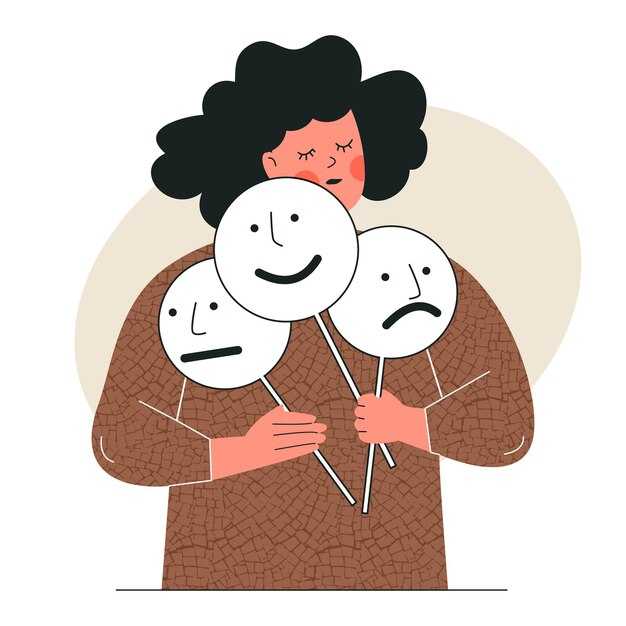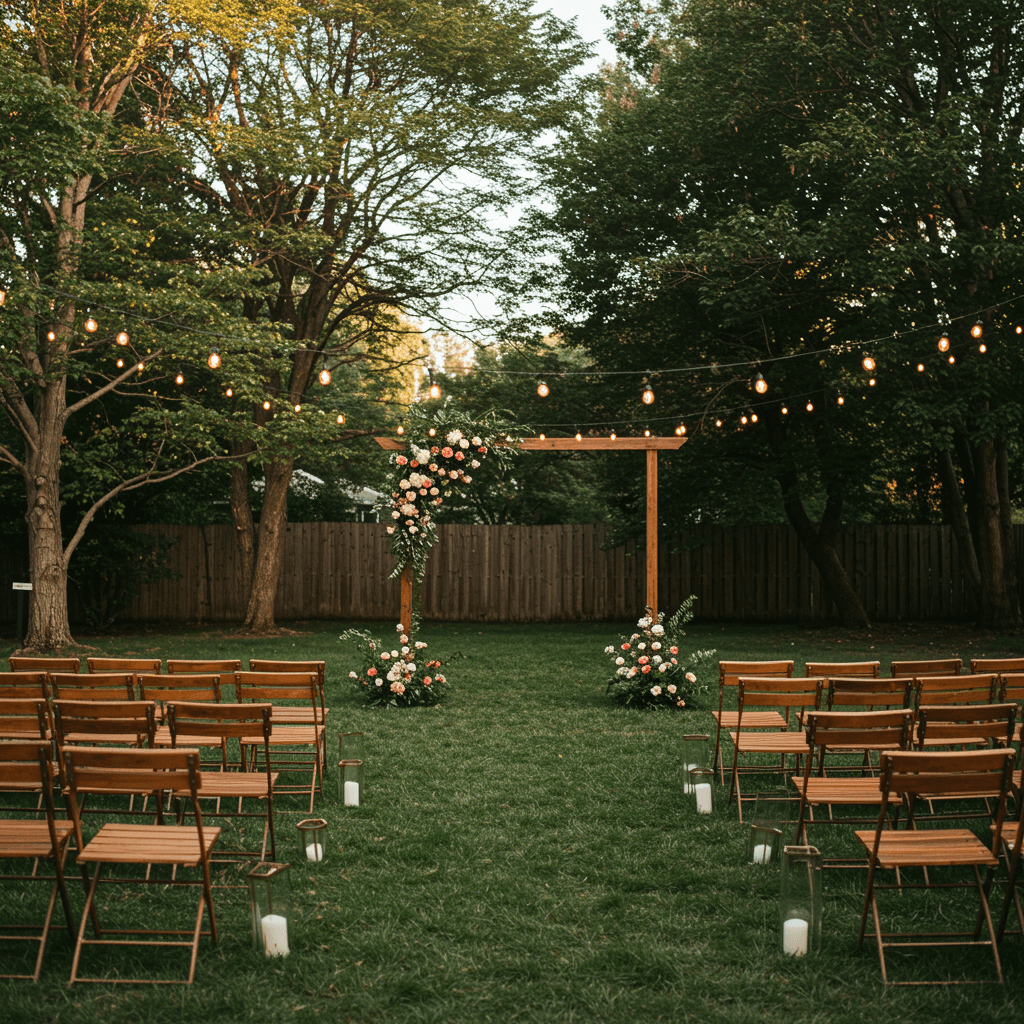There’s something strangely compelling about people who appear composed, steady, and seemingly unaffected. They don’t beg or pursue; their emotions seem tucked away and tightly controlled. If you’ve ever fallen for someone like that — warm one instant and suddenly distant the next — you know how brutal that emotional swing feels. You start to wonder what you did, replay every conversation, every silence, every moment they pulled back. But here’s the real point: this isn’t about your worth. It’s about the questions they cannot face. When you pose the right, probing questions, you’re not merely asking about feelings — you’re challenging the defenses they’ve erected around themselves. People who avoid intimacy often lack the emotional vocabulary to respond to that kind of directness, so they retreat. In this piece we won’t cover how to chase, fix, or coerce love from them. Instead, we’ll explore something much more revealing: the four questions they can’t answer — and the consequences of asking them — because asking forces the truths they’ve been dodging into the open. Let’s be honest: many spend months or even years trying to decode an avoidant partner, studying their texts, tone, silences, and distance. But what if, rather than guessing at their behavior, you asked the questions that make their real self unmistakable? What if the key isn’t in trying to get closer, but in holding up a mirror until they have to look? Avoidants thrive on ambiguity. They keep things blurry, they vanish when feelings intensify — that’s their defense. Being seen too fully threatens them; exposure triggers walls. Ask direct, emotionally revealing questions and you cut through the haze. You strip away their control and force them to meet the emotional reality they have long dodged. That’s the power of these questions: they don’t simply test an avoidant; they reveal you. They show whether the person you’re investing in can actually show up emotionally, or whether they will keep you trapped in an endless loop of hope and letdown. Before we get to the questions, though, you must grasp why avoidants dread questions at all. Understanding that makes their silence much less personal. The fear behind the distance didn’t arrive overnight. Avoidance is usually learned over years of hurt, rejection, and emotional neglect. Somewhere along the line they learned vulnerability equals danger — perhaps a caregiver loved only when they performed, punished displays of feeling, or met emotion with silence instead of response. So they adapted by closing off. When emotions surge — love, fear, sadness — their nervous system flips into survival mode, signaling, “This is unsafe. Create distance.” They retreat not out of lack of care, but because intimacy feels like losing control. For an avoidant, emotional questions feel like interrogation. When you ask, “How do you feel about us?” or “Why do you pull away?” they don’t hear curiosity; they hear a threat. Answering honestly seems like surrendering control and risking pain. So they deflect, minimize, or disappear. What’s tragic is that underneath it all they long for connection just as anyone else does — they want safety without the exposure, and that’s a contradiction: love requires risk; vulnerability requires trust. They were taught to equate openness with weakness, so trust looks like walking into fire. You’ll notice this pattern in conversations about feelings: they change the subject, crack a joke, accuse you of overreacting, or simply shut down more. It’s not that they lack understanding; it’s that their identity rests on self-sufficiency. Answering deep questions would threaten that identity. Every attempt to get closer brushes against old wounds that never healed completely. Questions like “What do you want from this relationship?” or “Why do you pull away?” land like a hand on a raw nerve; they don’t have the tools to answer, so they respond with silence, withdrawal, or anger — not because they hate you, but because they can’t face themselves. That’s why these four questions matter: they’re not traps. They are clarity-makers. They force truth to the surface in a way avoidance cannot tolerate because avoidants have spent their lives hiding behind emotional fog. A crucial mistake people make is thinking the goal is to extract an answer. It isn’t — it’s to observe the reaction. The reaction is the answer. When someone shuts down, dodges, or cannot give a straight response, that tells you everything. Phrases like “I just need space” or “You’re overthinking this” aren’t answers — they’re defensive moves meant to return control and refocus discomfort onto your feelings. Once you see that pattern, you stop chasing explanations and begging for closure. You recognize closure won’t come from them; it comes from understanding why they flee. When you stop personalizing their behavior, you stop being manipulated by it. They aren’t avoiding you — they’re avoiding themselves. They recoil from the mirror you hold up when you ask honest questions because the mirror shows the fear, shame, and longing they’ve buried. They’ve armored those parts, so truth becomes unbearable. The irony is that emotional exposure — what they fear most — could actually liberate them; they just don’t know how to get there. So when you enter a relationship with someone avoidant, know you’re on an emotional battlefield. They aren’t evil or incapable of love; they are stuck. Unless they decide to confront their fears, nothing you do will change that. Your role isn’t to rescue; it’s to remain rooted in your own truth: stop chasing, stop explaining, stop trying to force love on their timeline. Don’t attempt to convince them to love you as you love them; doing so drags you into their realm of confusion. Instead, ask the questions calmly and confidently — once — and then observe. Watch how they respond when faced with emotional truth: do they deflect? Disappear? Or finally stop running and meet you halfway? That pause after the question is revealing. Avoidants don’t hate love; they fear love’s demands — exposure, honesty, surrender — and they dread being seen. If you want to end the hurt, stop fearing their silence. Recognize it as protection, not rejection. When you do, you reclaim your power. You stop asking, “Why don’t they love me back?” and start asking, “Why am I choosing someone who’s afraid to love?” That’s where healing begins. Rather than chasing crumbs, you stand in reality. You’re no longer fishing for validation; you’re asking them to show who they truly are. These four questions will illuminate patterns, fears, and the emotional boundaries of an avoidant, and they’ll tell you whether to stay or to leave. So stay tuned — the next section contains the four questions that can change everything. There’s a moment when things feel like they might finally be okay: guards lower, laughter comes easy, the tension ebbs, and for an instant you think, “Maybe this is real.” Then, as warmth tries to settle in, they shift — eyes harden, tone tightens, and the connection that seemed alive slips away. That cycle shatters people: one minute you’re building something meaningful, the next you’re left in stunned silence asking what you did wrong. You did nothing wrong; you bumped into a wall they built because they never learned to let anyone climb it. That’s the setting for the first question — the one that forces them to look at the fear they’ve been running from their whole life. Question one: what are you afraid of losing if you let someone get close? It’s simple and calm, not accusatory, but it targets their core belief. Avoidants base their safety on control, convinced that detachment prevents hurt. Asking this question isn’t about you; it’s about the fear they protect. It’s an invitation to name what they guard so fiercely. Ask it once, gently, without pressure, and observe. Most will go quiet; eyes will shift, breathing will change. Some will laugh it off, others will reply with vague denials like “I’m not afraid of anything” or “I just need space sometimes,” yet you’ll feel the shift in energy — the indication that you’ve touched something they won’t name. Deep down, what they fear losing is often the illusion of strength. They’ve survived by depending on themselves, and needing someone feels like weakness. Ironically, that illusion keeps them lonely: they want to be loved but don’t want to need love; they crave closeness but fear it most. You’ll see it in their silence and the way they look away when you speak from the heart. Caring feels unsafe because love reminds them of past hurts when openness led to pain. So asking “What are you afraid of losing if you let someone get close?” is really asking, “What memory or wound are you still protecting?” It might be a childhood moment when a parent withdrew affection, a betrayal by someone they trusted, or a long-standing belief that emotions are weakness. That question brings these things up — not through argument but by exposing quiet truth. You can’t force an avoidant to answer, and you shouldn’t try. The question’s power lies in the reaction: if they pause and say, “I don’t know” or, “I’m afraid of losing control,” that’s a sign of emerging self-awareness. If they deflect, mock, or blame you, that’s your signal to stop rescuing. People who can’t answer aren’t malicious; they’re frightened. But if you persist in seeking answers from someone who fears honesty, you will lose yourself in their silence. Ask once, let the question hang, and let their discomfort speak louder than any explanation — sometimes a silence is the confession you needed. Question two: why do you pull away right when things start feeling good? This one hits at the moment they sabotage the very thing they secretly want. You know the scene: things finally ease, they text more, laugh more, show up, you feel hope — and then they vanish, grow cold, or seem irritated by your presence. That pattern is reflexive, not random. For an avoidant, emotional safety equals distance; when they begin to feel loved, their nervous system panics because calm is unfamiliar and therefore dangerous. Asking why they pull away when things get good holds that reflex up to the light. Do not ask from anger or pleading; ask from calmness — it cuts deeper that way. Many will answer with confusion: “I don’t know, I just need space,” or accuse you of being too intense. Beneath those words, though, is guilt: they sense they undermine the peace they claim to want but don’t understand why. They long for safety yet distrust it. For them, comfort equals vulnerability, and vulnerability equals danger. Getting close causes panic; retreat restores safety. It’s a cruel cycle of longing and fear. By asking this question you interrupt that dance and bring awareness where instinct once ruled. Some will turn it back on you, calling you dramatic; don’t argue. This question isn’t meant to induce guilt; it’s meant to reveal whether they can reflect. If they pause and admit, “It scares me when things feel too good,” that’s a doorway into honesty. If they deny or retreat, that’s clarity: they aren’t ready. This question also forces you to examine your own patterns, because sometimes we become hooked on trying to unlock people who don’t want to be unlocked. You can’t out-love someone’s fear; you can only meet them where they’re willing to meet you. When you ask and they can’t look you in the eye, remember their silence isn’t rejection — it’s reflection. You’ve simply touched a wound they avoid. Your strength lies not in fixing them, but in seeing the truth. After asking, you won’t be able to unsee the pattern; you’ll watch it repeat, but you’ll stop blaming yourself and start understanding they flee from peace. For people raised in chaos, peace can feel terrifying. So ask, “Why do you pull away right when things start feeling good?” and listen for the silence and the next action — that is your closure. Stop chasing explanations; regain your power by demanding questions that reveal who’s brave enough to stay. Question three: what does love mean to you? Most people can answer this easily — connection, trust, warmth, feeling safe. An avoidant often cannot. They freeze, default to logical descriptions, or speak about loyalty, effort, or independence rather than closeness. To them, love has never felt safe; it’s always demanded surrender and surrender feels like loss of control. If early love came with conditions — be quiet, perform, don’t express need — they learned to keep love at arm’s length. Asking what love means asks them to define something they have not experienced without fear attached. They may respond in fragments: “Love is caring for someone but giving them space,” or “It’s not needing someone yet choosing them.” Those answers sound rational and wise, but they contain distance: their definition of love includes an escape hatch. That’s how they protect themselves, transforming love into something that avoids vulnerability. The inability to describe love emotionally is telling. People who have known love, even after pain, will describe it in feelings — seen, safe, understood, surrendered. Avoidants will emphasize control and balance. Hearing their definition shows you whether you’re trying to build with someone who doesn’t share your definition of love. That pain is also liberating: you realize you’re not asking too much; you’re asking for love in its full form. They can only offer fragments. Ask once, listen to whatever they say, and pay attention to what’s missing — often the unsaid reveals more than the spoken words. That leads to the final, most revealing question. Question four: when you push people away, what do you tell yourself? This goes to the heart of the internal story that justifies their withdrawals. Every avoidant spins a narrative to excuse the distance — “I need space,” “They’re too emotional,” “It’s not me, it’s them.” Those lines are a defense, a way to silence the guilt after they create distance from someone who did nothing wrong. When you ask them what they tell themselves, you hold that justification up for them to hear. Most cannot articulate it. They’ll hesitate, frown, look away, laugh nervously, or change the subject because deep down they know the truth: the people they push away were rarely the threat — their own fear was. This question exposes the repetition: underneath the logic and control is a wound from being left first. They preempt pain by leaving first, hurting you to avoid being hurt themselves. Asking this forces that dynamic into the light, whether they confess or not. The answer they can’t give is the one that reveals everything. But remember: this isn’t about accusing; it’s about clarity. You’re not trying to make a confession out of them — you’re naming the pattern so you can choose not to keep living inside it. When you ask, the room may change; they might shut down. Don’t chase the answer — silence is often the loudest admission. Most avoidants don’t fully register the pain they cause, not from cruelty but from disconnection. Emotions equaled chaos in their training, so they step away to “protect” both you and themselves, but this repeats the past rather than healing it. Observing this pattern helps you see you were never the problem; you were simply the trigger. Don’t argue as they run. Don’t beg. Hold the truth and let it guide you. Once you grasp why they flee, you stop chasing someone fleeing from themselves. Here’s the paradox: sometimes asking that question won’t bring them nearer — it will free you. Their silence may show you that you were waiting for answers they don’t possess. You have been clinging to hope instead of accepting reality, and the truth — however painful — sets you free. “What do you tell yourself when you push people away?” is the mirror moment where illusion ends and clarity begins. It ends the search for love in someone who fears it and starts the reclamation of the love you’ve been giving away. You stop earning peace and start becoming it. You can’t love someone into healing; you can only love yourself enough to refuse half-measures. Asking the questions they can’t answer is not cruelty — it’s courage. It gives voice to truth in a relationship built on silence. Yes, it might shatter illusions and push them further away, but it will draw you closer to yourself. This isn’t about winning them back or fixing them; it’s about seeing clearly who will stand in truth with you. Love does not fear truth — fear does. Once you stop fearing their fear, you become unstoppable. Eventually you will have asked these questions and face a silence so big it stings; it may feel unfinished, cold, and unresolved. But what if that silence is the resolution? When you stop pleading, explaining, and convincing, you start to hear the truth behind their distance: the reason they couldn’t answer isn’t that you weren’t enough, but that answering would force them to confront years of what they’ve buried. If their identity depends on avoiding pain, truth looks like a threat. Ask those four questions calmly and watch the picture appear. Their reactions will make everything clear: anger, defensiveness, accusations, shutdowns, or evasions — but sometimes, rarely, the mask will crack. You may glimpse softened eyes or trembling voice: a fleeting sign of the part of them that longs to connect but doesn’t know how. That fragile piece of heart remembers safety, but it’s not your job to extract it. Your job is to notice it and allow them to walk their path. Insight is not transformation; awareness is only the first step. Courage is the change-maker, and courage must come from them alone. When they can’t answer, that’s your turning point. You realize you’ve been holding on to possibility instead of truth. You were in love with who they could be, not who they are. That realization hurts, but it’s also the start of freedom: you stop waiting, stop trying to heal what they keep reopening, and protect your own peace. You will miss them and the rare moments when their walls slipped, but you will also remember that the walls always returned. Then you understand: you weren’t losing love; you were losing a fight you weren’t meant to fight alone. At that moment something shifts. The pain remains but becomes wisdom. You no longer take their silence as a personal rejection; you see it as clarity. You stop internalizing their fear and begin to reclaim your worth. That is the real change — not when they transform, but when you do. When you stop expecting answers they don’t have, you begin to hear the answers your soul has always whispered. Love isn’t chasing people who make you doubt your value — love is clarity, standing in truth even when it hurts. The four questions — What are you afraid of losing if you let someone get close? Why do you pull away when things start feeling good? What does love mean to you? And when you push people away, what do you tell yourself? — do more than challenge them; they awaken you. Each question peels back another layer of defense, revealing both their walls and your boundaries, because to ask them you had to be ready for the truth, even if that meant losing the person you wanted to keep. That is power, growth, and emotional maturity. You stop playing guessing games, stop tiptoeing around silence, and stop romanticizing distance as mystery. Maybe, finally, you stop trying to earn love from those who only know how to withhold it. Real love does not hide, confuse, or punish you for craving closeness — it invites you in with honesty, transparency, and safety. If someone can’t meet you there, that’s their fear speaking, not love. You deserve presence, not fear. The gift of asking these questions is not that they change the other person, but that they change you: you learn not to fear loss, to value truth above connection, and to sit in discomfort without losing yourself. That is the lesson. Peace doesn’t come when they finally answer; it comes when you no longer need their answer to feel whole. Then you stop waiting for closure, stop replaying conversations, and stop hoping they will one day understand what they had. You realize you can love deeply and still walk away from the chaos. You can care without clinging, forgive without returning, and let go not because love is gone but because you chose self-love. When that shift happens, everything changes: you attract honesty instead of confusion, crave clarity instead of mixed signals, and learn that silence can mean alignment, not rejection. You stop chasing those who cannot meet you and make room for someone who will not forget you. You don’t heal by forcing them to understand you; you heal by understanding why they can’t meet you.














